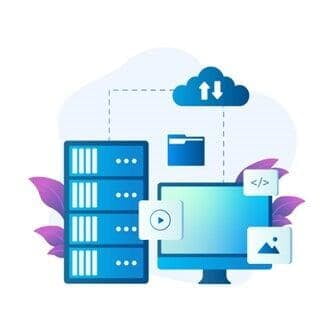
A data warehouse is a data management system developed to enhance and support business intelligence (BI) analytics and activities. Data warehouses are mainly dedicated to performing queries and analysis and often carry huge amounts of historical data. Data within the data warehouse is generated from a vast number of sources like app log files and transaction apps.
The data warehouse centralizes and consolidates huge amounts of data from different sources.The data warehouse capabilities help businesses to derive advanced insights from their data to enhance decision making. And creating a historical record can be invaluable to business analysts and data scientists. Because of these capabilities, a data warehouse can be considered a business’s ‘single source of truth."
In simple words, a data warehouse is a collection of organizational data and information gathered from functionable and external data sources.
This data is regularly collected from the various internal applications like marketing, finance, sales, customer insights as well as external systems.
Types of data warehouses
3 main types of data warehouse
● Enterprise Data Warehouse
● Operational Data Store
● Data Mart
Enterprise Data Warehouse (EDW)
These warehouses act as a central database that helps decision making support services for the entire enterprise.
Advantage: it offers access to cross-organizational information, provides a unified approach to data representation, and it helps running complex queries.
Operational Data Store (EDW)
This type of warehouse refreshes in real time. It is used for routine activities like storing various employee records.
Data Mart
The data mart is part of a data warehouse created to maintain a specific business part, region, or department. In every department of business has a data mart to store the data. The data from the data mart is stored in the ODS every period. Then the ODS sends the data to EDW. The data is stored and used in EDW.
Benefits of Data Warehouse
Benefits of Data Warehouse
The company’s goal is to help advanced business decisions. Adding a data warehouse to your business intelligence system will greatly benefit organizations in many ways.
●Delivers improved business intelligence
With access to information from a variety of sources from a single platform, decision-makers no longer have to rely on limited data or their instincts. In addition, data warehouses can be easily applied to a business's processes, for example, market segmentation, sales, risk, inventory, and financial management.
● Time saving
A data warehouse gathers and classifies data from multiple sources. It makes it easier to combine and integrate everything. Users can make better decisions with all the important data in one place. Additionally, data accessibility for executives can be their own. It saves time and money.
●Enhances data quality and consistency
A data warehouse turns data from multiple sources into a consistent format. Because the data is standardized across the organization, all departments will produce results. And the results are consistent. This gives more accurate data and helps to make better decisions.
●Provides high return on investment
Data warehouse helps to get a deep insight into current business scenarios and estimate opportunities and risks. So, this provides a competitive benefit.
● Offers competitive advantage
Data warehouse offers advanced insights to decision-makers. Maintaining a cohesive database
● Enables accurate forecasting
Here, data engineers can analyze the data to make better forecasts in the current and future market. They can identify the KPIs and measure the predicted results.
● Streamlines the flow of information
A data warehouse offers an information flow through a network. It connects all related and unrelated parties.
Data warehouse powerful tool that can help you maintain your data securely.
Start your business with us.

